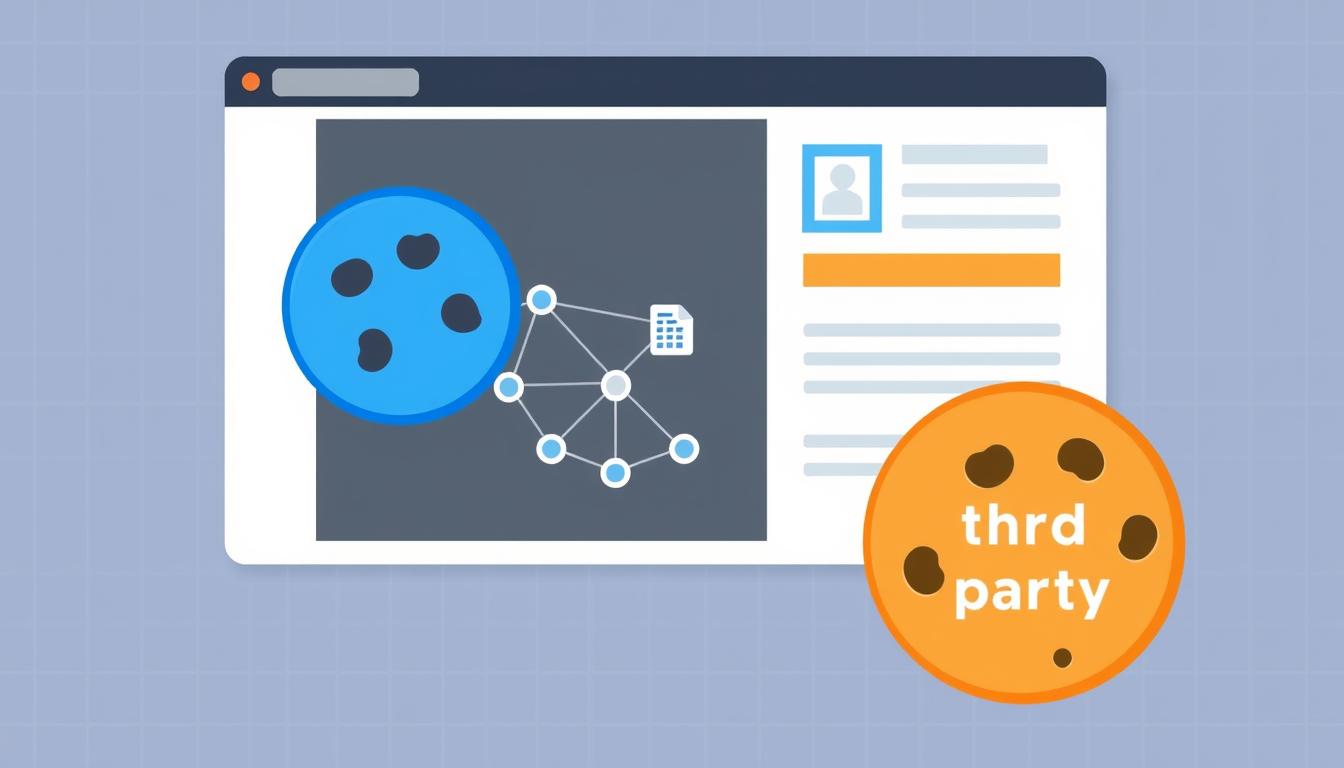Ever wondered why ads seem to follow you everywhere online? That’s the magic of internet cookies. These little information records are made by websites and put away on your gadget as you surf. They make your online encounter superior by recalling your preferences.
Cookies store important info like your login details and what’s in your shopping cart. They also help websites understand how you behave online. This way, they can show you things you might like. Knowing about these tiny trackers is key to keeping your online life private.
Key Takeaways
- Cookies are small data files created by websites.
- They remember your preferences and login details to enhance your online experience.
- Cookies are essential for how cookies track user behavior on websites.
- Understanding treats is key to overseeing your online privacy.
- They analyze patterns in your online activities to provide personalized experiences.
Understanding Internet Cookies
It’s important to know about browser cookies in today’s digital world. Cookies help websites remember you, making your online visits better. We’ll cover what cookies are and how they work.
Definition of Cookies
Cookies are small substance records websites make and save on your gadget. They hold data like your inclinations and login details. This lets websites remember you and offer a better experience.
Knowing what cookies are helps you understand their role in web browsing. They’re key to a smooth online journey.
How Cookies are Stored
When you visit a site, cookies are saved on your device. It starts when the site asks to write a cookie file. These files stay on your device until they expire or you delete them.
Understanding cookie storage helps you control your online privacy. It’s a step towards better web safety.
Types of Cookies: First-Party vs. Third-Party
Understanding the different types of cookies is key to knowing how your data is used online. There are two fundamental sorts: first-party treats and third-party cookies. Each has its own purpose and affects your online experience differently.
First-Party Cookies Explained
First-party cookies are set by the website you’re on. They remember your preferences, login info, and shopping cart items. This makes your browsing more personal. Their main job is to make your visit smoother and keep your session going.
Third-Party Cookies and Their Usage
Third-party cookies come from other websites than the one you’re on. Advertisers and services use them to track your actions on various sites. This helps show you ads that match your interests. But, it also raises big privacy worries for many.
Knowing about first-party and third-party cookies helps you understand your online activities better. It lets you make smarter choices about your digital privacy.
How Internet Cookies Track User Behavior
It’s important to know how cookies track our online actions today. Cookies collect data on what we do on different websites. This helps companies make ads that match what we like and do online.
Tracking Online Activity
Cookies are key in tracking our website visits. They record things like the pages we visit, how long we stay, and how many times we click. This info helps create detailed profiles of us. It tells businesses what we prefer, making our online experience more relevant.
Examples of Tracking Technologies
There are other tools that work with cookies to watch our online moves. Here’s a table showing some of these tools and what they do:
The Role of Cookies in Targeted Advertising
Cookies are key in making targeted ads better. They collect data to help online businesses tailor their ads to you. This means you see ads that really interest you, based on how you use the internet.
Personalized User Experience
Cookies use your past visits to create a custom experience. They learn what you like and suggest things that feel right for you. This makes your online time more enjoyable, as websites remember what you’ve looked at or bought.
Delivery of Targeted Ads
Targeted ads come from the insights cookies provide. Stores like Amazon and eBay use this data to show you items you might like. These ads are more than just sales pitches; they offer solutions that fit your needs. This makes both you and the businesses cheerful.
Managing Your Cookies and Online Privacy
In today’s advanced world, keeping your online security secure is key. You can manage tracking online by controlling cookies. Learning how to delete cookies and set cookie preferences helps you decide what sites can collect from you. Also, using privacy-focused browsers can make your browsing safer.
How to Clear Cookies
You can clear cookies from your browser’s settings. Each browser has its own way to manage cookies, so it might differ. When you find the cookie settings, you can delete all cookies or pick specific sites. Remember, deleting cookies might erase saved logins and site settings, but it reduces your digital trail.
Cookie Settings and Permissions
Changing your cookie settings lets you control tracking. Most browsers let you accept or reject cookies from other sites. Setting your preferences right can block unwanted tracking and still offer a tailored browsing experience. It’s good to check and update your cookie settings often to stop unwanted data collection.
Utilizing Privacy-Focused Browsers
Think about using browsers that focus on privacy and security. Browsers like Brave and Firefox have features to block trackers and manage cookies well. Choosing a privacy-focused browser can help you manage tracking better and enjoy a safer browsing experience.
Conclusion
As you explore the internet, cookies are key in making your online time better. They help tailor your experience and show you ads that fit your interests. But, it’s important to know how cookies work to keep your online life private.
Every cookie you see helps build a picture of your online habits. This makes it crucial to manage your data well. By doing so, you’ll control what data is shared online.
To keep your privacy safe, clear cookies often and change your cookie settings. Using browsers that focus on privacy can also help. These steps will help you enjoy the internet safely and still get the good stuff from cookies.
Internet privacy is a big deal today. It’s up to you to know how to protect yourself online. By taking the right steps, you can make sure your personal info stays safe while you enjoy the web.







GIPHY App Key not set. Please check settings